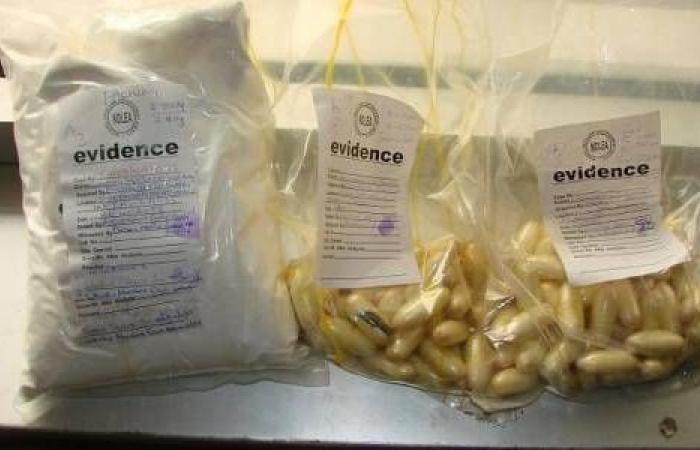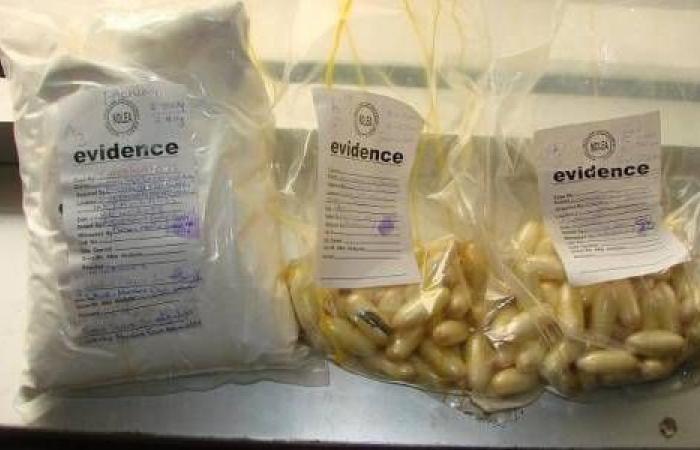AFRICA – Drugs in Africa: from transit countries to emerging markets for narcos
Saturday, June 29, 2024 drug
Dulue Mbachu/ International Relations and Security Network
Roma (Agenzia Fides) – Drug trafficking in the Sahel countries harms public health and fuels regional instability. According to the latest report from the UNODC (United Nations Office on Drugs and Crime), “drug trafficking is well established in the Sahel region, with harmful consequences both locally and globally. The involvement of various armed groups in drug trafficking continue to undermine peace and stability in the region.
Cannabis resin remains the most frequently seized substance in Sahel countries, followed by cocaine and pharmaceutical opioids.
It should be noted, however, that cocaine seizures increased from an average of 13 kg over the period 2015-2020 to an impressive 1,466 kg in 2022 alone between Mali, Chad, Burkina Faso and Niger. In June 2023, 2.3 tonnes of cocaine were seized in Mauritania alone. In April 2024, Senegalese authorities announced the seizure of a record quantity of 1,137 kg of cocaine, worth $146 million. The cargo was hidden in a truck stopped at the border with Mali. In 2022, the authorities in Dakar seized 300 kg of cocaine in a truck, also on the border with Mali. The largest shipment was seized in November 2023, when the Senegalese navy confiscated nearly three tons of cocaine from a ship off the Senegalese coast.
The fact that the largest cocaine seizures were made in Senegal and Mauritania indicates that the traditional route used by drug traffickers from South America to Guinea-Bissau, Mauritania and Senegal is still very active. From there, the cocaine is then transported overland via Mali and Niger, and then to North African countries such as Algeria, Libya and Morocco. The cocaine is finally transported across the Mediterranean to Europe, the main drug market along with North America.
However, African countries are no longer just transit countries, but also emerging markets for drugs. In addition to traditional cannabis, cocaine, natural and synthetic opiates, methamphetamines, etc. have been added. This is also explained by the fact that small African traffickers are paid by selling quantities of drugs which they then resell on the local market.
West African consumers now have new cheap synthetic substances at their disposal, such as Kush (mixture of marijuana, tentanyl and tramadol), which has created a health and social emergency in Sierra Leone and Guinea Conakry (see Fides 10/27/2023 and 4/8/2024). To this substance, according to the UNODC, are added others with exotic names such as Khadafi (mixture of tramadol and alcoholic energy drinks), Monkey Tail (mixture of seeds, leaves, stems and roots of gin and cannabis) . Thus, alongside substances imported from other continents, such as cocaine, there is cheap local production of new drugs which are spreading among the populations of West African states. Local authorities must confront the social and health damage caused by the abuse of these drugs, starting with the increase in psychiatric problems.
“Local drug markets in Africa are rapidly diversifying, from a predominance of domestically sourced cannabis to a multitude of drugs in transit. This diversification exacerbates existing health problems, especially as treatment services drug addicts are limited in West Africa,” explains the UNODC.
Finally, drug trafficking not only finances the armed groups present in the region, it also exacerbates the problem of corruption, with police, customs officers and politicians in the pay of narcos, while part of the revenues of the drug trafficking is reinvested in local markets, which compromises the development of a healthy economy. (LM) (Agenzia Fides 29/6/2024)
Share:







